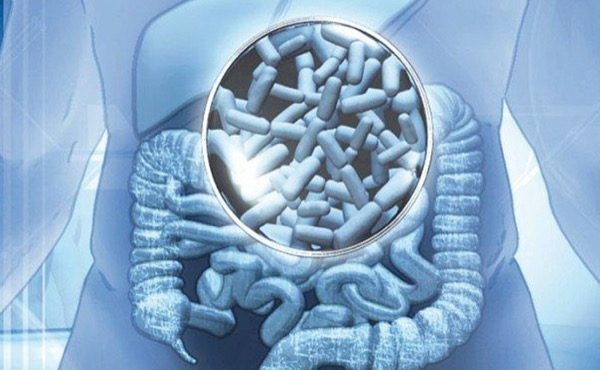A single fecal microbiota transplant is safe, improves liver function and reduces pro-inflammatory cytokines in patients with advanced but stable decompensated cirrhosis, new research has found.
However, the study also found that patients who underwent FMT did not have improved 180-day survival relative to those who did not undergo the procedure.
Radha K. Dhiman, MBBS, DM, a professor of hepatology at the Postgraduate Institute of Medical Education and Research, in Chandigarh, India, said the modulation of gut dysbiosis with FMT has shown promising results in patients with decompensated cirrhosis. In the current study, Dhiman and his colleagues assessed the impact of FMT on a host of outcomes, including the severity of liver disease, prognostic scores, inflammatory markers (interleukin [IL]-1 and IL-6), new–onset decompensations, 180-day mortality and safety.
The researchers enrolled 36 consecutive patients into the trial, all of whom had advanced but stable decompensated cirrhosis, with Model of End-stage Liver Disease (MELD) scores ranging from 12 to 21. These individuals received either FMT (n=18; 30 g freshly prepared stool homogenized in 100 mL normal saline through a nasojejunal tube) plus standard medical therapy or standard medical therapy alone (n=18). Outcomes were assessed at days 7, 28, 90 and 180.
As reported in a presentation during the 2020 digital Liver Meeting (abstract 176), Dhiman noted that hemoglobin (P=0.05), serum bilirubin (P=0.001) and serum albumin (P=0.001) improved in FMT patients until the termination of the trial at day 180. Child-Turcotte-Pugh scores also improved significantly in the group that received FMT (P=0.01), while MELD score (P=0.03) and MELD that includes liver sodium (P=0.04) worsened significantly among patients who received standard medical therapy.
With respect to pro-inflammatory cytokines, the study found that patients undergoing FMT experienced significant reductions in both IL-1 (P=0.01) and IL-6 (P=0.005) on day 28. Nevertheless, 180-day survival rates were comparable between groups (hazard ratio, 2.02; 95% CI, 0.37-11.05; P=0.41).
The two groups also proved similar with respect to control of ascites, occurrence of new–onset variceal bleeding and breakthrough hepatic encephalopathy events. Transient gastrointestinal side effects were common among patients who underwent FMT (56.2%), although none was serious, according to the researchers.
Ashwani K. Singal, MD, MS, an associate professor at the University of South Dakota Sanford School of Medicine, in Vermillion, said he was encouraged by the results but surprised that the gains in liver function did not translate to long-term survival benefits.
Singal, a member of the editorial board of Gastroenterology & Endoscopy News, said the new work adds to other evidence that FMT may play a role in the management of liver diseases, particularly alcohol abuse. As another study presented at the Liver Meeting found (abstract 7), FMT appeared to control alcohol cravings in people with alcohol use disorder and cirrhosis (see February issue, page 24).
“They suggested that FMT not only helps liver disease through the gut–liver axis but also improves alcohol craving and alcohol use in these patients, which is more through the gut–brain axis,” Singal said. “If confirmed in large randomized studies, FMT may become front-line therapy for the treatment of liver disease and cirrhosis, especially from alcohol. So, from that perspective, this is an important study.”
—Michael Vlessides
This article is from the May 2021 print issue.


